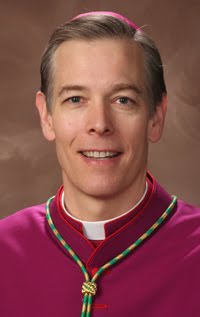Well… we have been discussing sacred music and its role in the liturgy, and it might occur to someone to ask
“What does all this have to do with Catholic Classical Education?”
and
“Why are we spending so much time talking about music and the Mass? Can’t we get back to Fabre and Dickens and Shakespeare and Chaucer and Virgil and Thucydides and Euclid and Euripides and Heraclitus and Homer and the Bible?” (incidentally, my Virgil class has been admiring Virgil’s use of polysyndeton- I admit this figure of speech takes some practice especially to avoid the pedantry that it arouses in amateur writers)
The answer of course has to do with the phrase ‘Catholic Classical Education.’ As we have argued before, this phrase is really just a clever code phrase for ‘Catholic Liberal Eucation’ – or rather simply Liberal Education. And Liberal Education is the sort of education that frees men from certain things while at the same time freeing them for other things.
Among the things that Liberal Education frees a man for, are chiefly the actions that he ought to perform when addressing his Creator. Liberal Education frees men so that they will ultimately be able to enjoy the beatific vision.
Or is this an exaggeration?
I realize that everyone has a tendency to rationalize the significance of the project in which he happens to be engaged, but if truth is the end of education, it seems to be no stretch of the truth to assert that the worship of God is the end especially of Liberal education.
Of course the worship of God is the end of every human activity, but I still maintain that the line between Liberal Education and the worship of God is straighter and shorter than say, the line between ‘plumbing’ or ‘farming’ and the worship of God.
No offense to plumbers and farmers here, both of which occupational groups are supremely important to our daily practical existence. As a matter of fact I should substitute the words politicians and lawyers for plumbers and farmers to make the point even clearer.
To put the point simply, Liberal Education frees men for the right and just worship of God. Therefore we need to speak every now and then, with as much clarity as is in the reach of our dim vision, about what the fitting worship of God looks like, so that we who participate in the education of the young might not perpetuate and contribute to ideas and practices and habits which will prove to set obstacles in their paths.
There. I think that was pretty clear.
Now back to Sacred music and the real point of this post, which is nothing other than to present a strong statement by Archbishop Samples of Portland Oregon.
“It is clear that the Council calls for the liturgy to be sung. In recent decades we’ve adopted the practice of singing songs at Mass. We take the Mass, and attach four hymns or songs to it. But this is not the Church’s vision. We need to sing the Mass. It is meant to be sung. The texts of the Mass are meant to be sung.
The Church provides us with chant, which is integral to liturgy, and should inspire the music of the Mass. We need to get away from singing songs at Mass and return to singing the Mass. And Gregorian chant is best suited to the Mass.”
I love this. Notice his use of the word integral. It is easy to see that Archbishop Samples is an intelligent man who knows how to follow a truth in principle out to the truth in its consequences.
If sacred music is integral to the Mass, then it follows that “We need to sing the Mass.”
If hair, arms, legs and toe nails are integral parts of the body, then by golly I stand by the position that every body should have hair, arms, legs and toenails!
As a matter of fact I really do not see any reason why there should ever be a Mass anywhere that excludes at least some minimal singing.
I suppose in times of persecution it might be necessary to keep things hush hush, but even then I don’t see why people couldn’t just sing the Kyrie very very quietly.
Note also that the Archbishop distinguishes the kind of music that the Council Fathers envision. Not all ‘spiritual music’ is integral to the Mass, but rather that which clothes
“with suitable melody the liturgical text proposed for the understanding of the faithful”
as Pius X teaches in his Motu Proprio.
Quite obviously the liturgical text spoken about is not the text that we hear when we are asked to sing a “Processional” and an “Offertory Hymn” and a “Communion Song” and a “Recessional.” I suppose by accident one of these hymns might contain a snippet of the liturgical text- but again only by accident.
Time to dust off our Gradulales and Libers and get to work.




